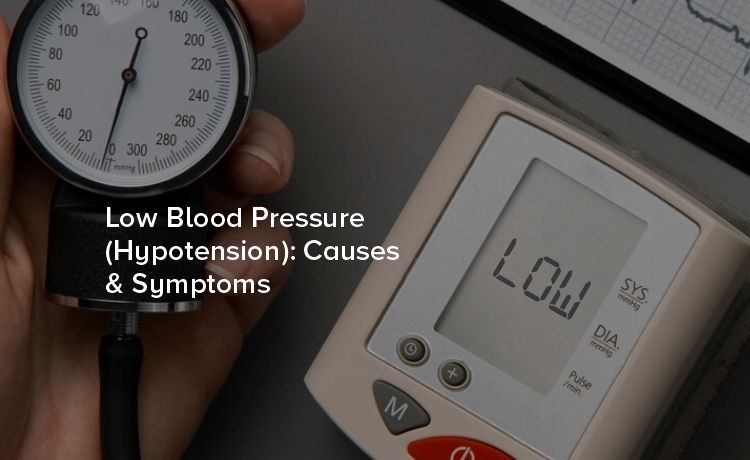
Low blood pressure, medically known as hypotension, might sound desirable to those who are familiar only with the dangers of high blood pressure (hypertension). However, hypotension can be just as concerning. While it's true that hypertension poses significant health risks, hypotension can lead to symptoms that affect daily life and, in severe cases, can signal underlying health issues.
Blood pressure is the force exerted by circulating blood on the walls of blood vessels. It’s measured in millimeters of mercury (mm Hg) and recorded as two numbers — systolic pressure over diastolic pressure. The American Heart Association considers a normal blood pressure reading to be between 90/60 mm Hg and 120/80 mm Hg. Hypotension is generally defined as a blood pressure reading lower than 90/60 mm Hg.
While some people with low blood pressure may not experience any symptoms, others may find it causes various unwelcome effects. It's important to note that what's considered low blood pressure for one person may be normal for another.
Low blood pressure can result from a range of factors, including but not limited to:
Dehydration: When the body loses more water than it takes in, it can cause weakness, dizziness, and fatigue.
Long periods of rest: Lying down for extended periods can cause blood to pool in your legs, leading to a sudden drop in blood pressure upon standing.
Certain medications: Blood pressure can be affected by drugs intended to treat high blood pressure, as well as other medications such as diuretics, erectile dysfunction pills, antidepressants, and narcotics.
Nutritional deficiencies: A lack of essential vitamins like B-12 and iron can prevent the body from producing enough red blood cells, causing low blood pressure.
Heart problems: Some heart conditions can lead to low blood pressure, including extremely low heart rate (bradycardia), heart valve problems, heart attack, and heart failure.
Endocrine problems: Some gland problems, such as underactive thyroid (hypothyroidism), adrenal insufficiency (Addison's disease), and low blood sugar (hypoglycemia), can cause low blood pressure.
Pregnancy: Blood pressure may drop during the first 24 weeks of pregnancy as the circulatory system expands rapidly.
The symptoms of hypotension can vary widely from person to person. Some individuals might experience mild symptoms, while others face more severe consequences. Common symptoms include:
In severe cases, low blood pressure can lead to shock, a life-threatening condition characterized by cold and sweaty skin, rapid breathing, and a weak and rapid pulse.
For those experiencing symptoms of low blood pressure, it's important to consult a healthcare provider to determine the underlying cause. Treatment often involves addressing the root cause of the condition. For example, if medication side effects are to blame, adjusting the dosage or changing the medication can help. Increasing water and salt intake can also be beneficial for some people, but only under a doctor's supervision.
Simple lifestyle changes and home remedies can also help manage symptoms. These include:
Standing up slowly: Rising gradually from a sitting or lying position can help avoid dizziness.
Eating small, low-carb meals: To prevent postprandial hypotension, it's advisable to eat smaller, more frequent meals and limit high-carbohydrate foods.
Drinking more water: Hydration helps increase blood volume and prevent dehydration, a common cause of low blood pressure.
Wearing compression stockings: These can help reduce the pooling of blood in your legs.
Low blood pressure, while less talked about than high blood pressure, is a condition that deserves attention. Understanding its causes and symptoms can help individuals recognize when it might be affecting them and encourage them to seek appropriate treatment. Whether through lifestyle adjustments, dietary changes, or medical intervention, managing low blood pressure is possible and can greatly improve one’s quality of life. Citizens Specialty Hospital is the best hospital for Cardiology treatment in Hyderabad. Book an appointment with our experts now.